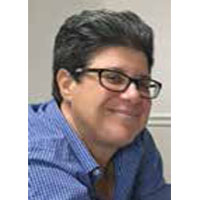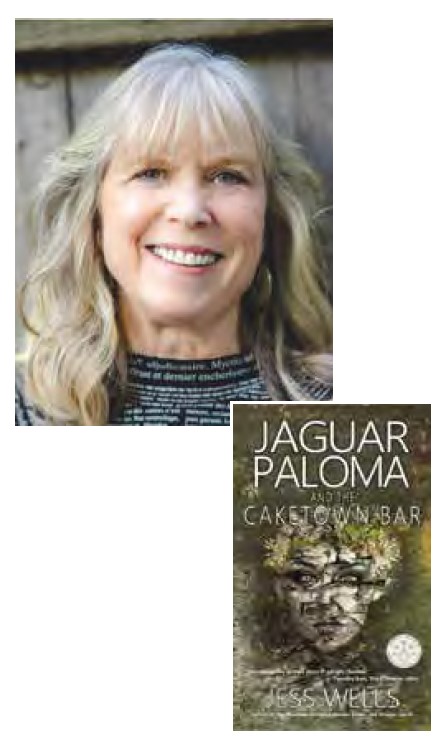
By Michele Karlsberg—
Michele Karlsberg: Local author Jess Wells delights her readers yet again with her sixth novel, Jaguar Paloma and the Caketown Bar. Jess is the author of six novels and five books of short stories, winner of the Bronze Medal in the 2020 Foreword Reviews Indies Award for Adult Fiction/Romance, the recipient of a San Francisco Arts Commission Grant for Literature, a four-time finalist for the national Lambda Literary Award, and is a member of the Saints & Sinners Literary Hall of Fame. Her work has appeared in more than three dozen literary journals and anthologies, and has been reprinted in England and translated into Italian and Dutch. Recently, I got a chance to speak with Jess.
Michele Karlsberg: Why did you decide to write it in the style of magical realism?
Jess Wells: In a way, this is an homage to Gabriel García Márquez, so it can’t be in any other form, can it? I’m kidding, of course, but it’s a style I love to read and have always longed to write. It has been creeping into my writing over the years and I’m so excited to be able to pull it off in a full-length novel. For example, in The Mandrake Broom [one of Jess’ historical novels], the protagonist doesn’t age like others do because of a potion given to her by her mother. In A Slender Tether [another of Jess’ books], the doctor in “The Gong Farmer’s Tale” is sealed up in a cave by a bear. There is a tiny bit in Straight Uphill when people arrived to honor the hero of World War I. But this is the most extensive use of magical realism in my writing to date, and it was absolutely the most fun I have ever had writing anything.
Michele Karlsberg: Tell us about your research for this book.
Jess Wells: I went to Columbia on a 14-day tour of the country that included the Gabriel García Márquez Museum in Aracataca, Colombia, the house where he grew up with his grandparents. We also went to Mompós, which is considered more of the actual locale of his stories, and we stopped at Cartagena. Some of the things I saw that I incorporated included the marsh with the cattle on small strips of land, the solitary trees, the birds, the weaverbird (a symbol of Colombia), people cutting mud for bricks, the Magdalena River, and the caimans. We visited the hilly coffee growing region, and the small houses of the coffee growers and pickers. We were fortunate to be there during the three days that the coffee plants bloom, which is a rare event. The floating village in my book—though there is one in the marsh in Colombia—is actually based on my experience of a floating village in Cambodia, and I didn’t know until afterward that the area around the Colombian village is referred to as “The Bay of the Jaguar.”

Michele Karlsberg: Describe some of the themes in the book.
Jess Wells: [They include] the intense love between women, the oppression of single mothers, the violence and sexual oppression of women, extreme weather and the anxiety it produces, the way a woman’s beauty changes her reality, the temptation to use one’s beauty as leverage, the restorative power of community, the use of men by men, the unique connection between twins, and the frailty—some would say the chimera—of legitimacy versus illegitimacy.
For more information: http://www.jesswells.comMichele Karlsberg Marketing and Management specializes in publicity for the LGBTQ+ community. This year, Karlsberg celebrates 32 years of successful marketing campaigns. For more information: https://www.michelekarlsberg.com
Published on December 16, 2021




Recent Comments